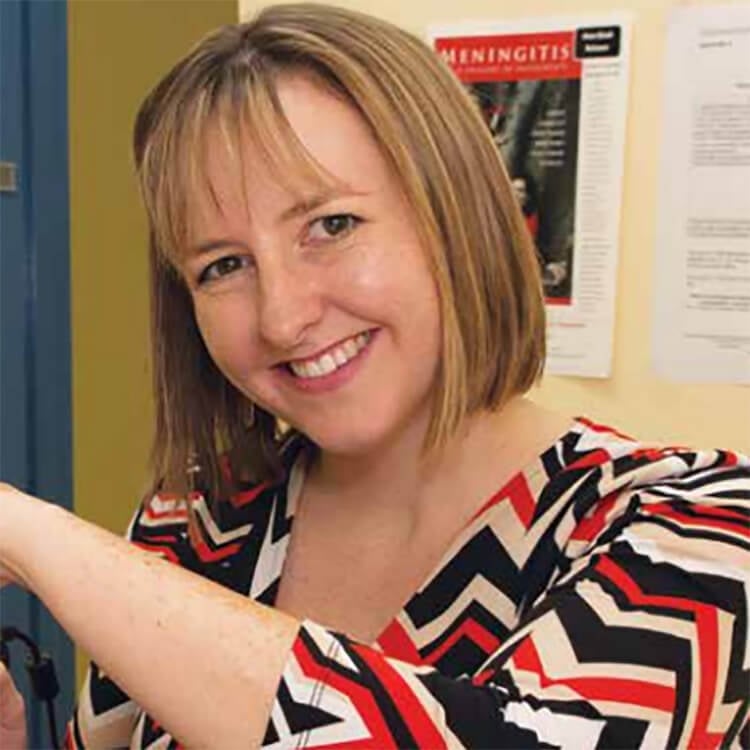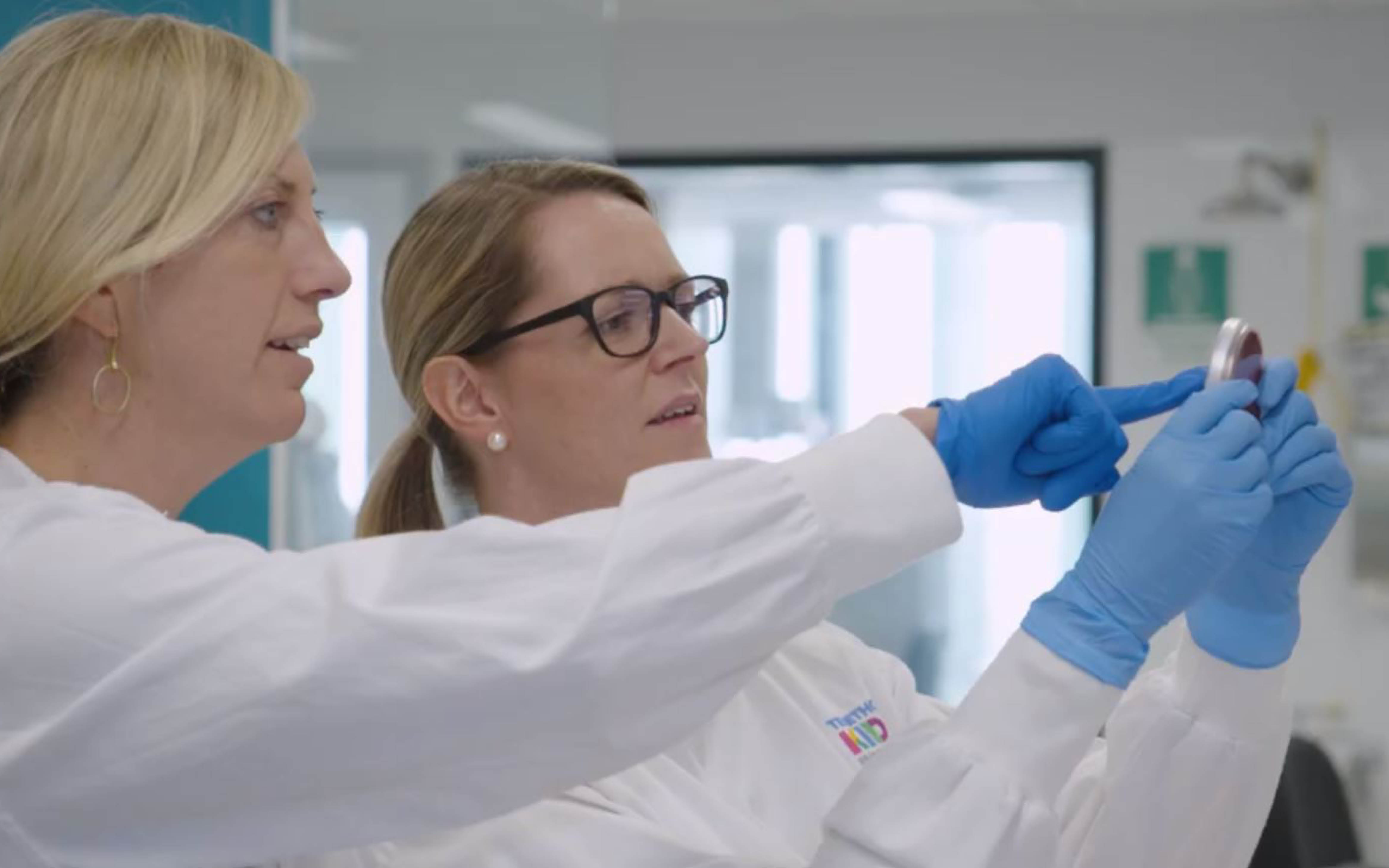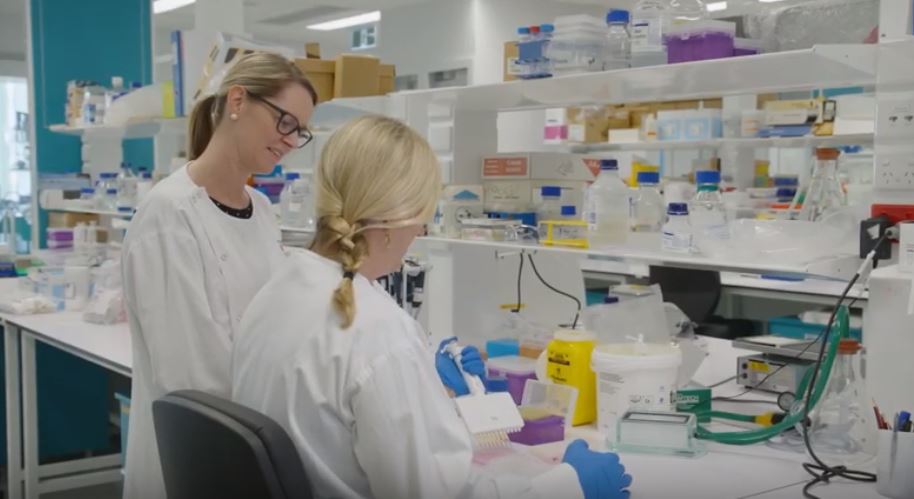The aim of the Bacterial Respiratory Infectious Disease Group (BRIDG) is to deliver strategies to prevent, diagnose and treat bacterial ear and lung infections to reduce the global burden of disease.
BRIDG are a research team of microbiologists and immunologists who work with paediatricians, ENT surgeons, research nurses, epidemiologists, vaccine developers, policy makers, consumers and community representatives working together to deliver an evidence-based approach to preventing ear and lung infections.
Ear Infections
Otitis media, also known as middle ear infection or OM, is the main reason for GP visits, antibiotic prescriptions and surgery in preschool children. OM affects almost every child by their 2nd birthday, and one in four children will suffer from repeat or chronic OM - leading to hearing loss and surgical intervention. Almost 5000 children undergo grommet surgery for OM in Western Australia each year. Wait times for grommet surgery at public hospitals can be up to two years, resulting in persistence of hearing loss during critical stages of language and speech development.
Aboriginal and Torres Strait Islander children have the highest rates of chronic OM and associated hearing loss in the world. The World Health Organization has declared these high rates of OM as “a public health emergency requiring urgent attention”.
The BRIDG team, in association with the Ear Health team and Vaccine Trials Group at the Wesfarmers Centre for Vaccines and Infectious Diseases, are committed to preventing OM and associated hearing loss in all children so that they can start school ready to learn. We have a program of research that spans across improving healthcare service delivery, improving OM detection, and developing better treatments and preventative therapies. Our team is leading the way in developing a novel nasal spray Spritz-OM to prevent otitis media. We are also leading a Phase 2 trial to improve treatment of chronic otitis media: ATOMIC ears.
Pneumonia
Pneumonia is an infection of the lungs and is the leading cause of death in children worldwide. Papua New Guinea (PNG) has one of the highest global rates of childhood mortality from pneumonia, accounting for 23 per cent of all deaths in <5 year olds.
Our team is involved in a vaccine trial of pneumonia vaccines in PNG children to identify the best vaccines to use for kids who are at very high risk of dying from pneumonia. By understanding immune responses to these vaccines, we are informing vaccine providers and vaccine developers on the best strategies to protect children from this deadly disease. The BRIDG team is proud to work in partnership with the PNG Institute of Medical Research in Goroka on this project.
Vaccine Development
The BRIDG team are committed to developing new vaccines and assessing the efficacy of new and old vaccines and their schedules in the community. Vaccines include those against pertussis (whooping cough), nontypeable Haemophilus influenzae, Streptococcus pneumoniae, Moraxella catarrhalis and SARS-COV2. We continue to develop a suite of the most cutting edge techniques to both aid in vaccine development and implementation. These enable us to understand vaccine responses and work with leading international scientists and clinicians to ensure translation of findings into further vaccine development and clinical practice.
Team Highlights
- Proof of concept of our novel bacteriotherapy in prevention of otitis media in preclinical models
- Identification of a modifiable microbiological risk factor to prevent repeat grommet surgery
- Launch of the ATOMIC Ears Study
Team leader
Co-Head, Bacterial Respiratory Infectious Disease Group; Microbiology Lead, Wesfarmers Centre of Vaccines & Infectious Diseases

PhD
Co-head, Bacterial Respiratory Infectious Disease Group (BRIDG)
Team members (7)

BSc PhD
Program Manager, Bacterial Respiratory Infectious Disease Group

BSc BMedSc(hons) PhD
Honorary Research Associate

Caitlyn Granland
Research Assistant

Jo Bayliss
Research Assistant

Cristina Gamez
Research Assistant

Sharon Clark
PhD Candidate

Sonia McAllister
PhD Candidate
Featured projects
Evaluation of a bacterial therapy for prevention of respiratory infection including influenza and otitis media
Dornase alfa as an adjunct therapy to treat chronic ear infections
Other projects
Impact of Repeat Pertussis Vaccination on Infant and Maternal Antibody Quality Unlocking the immunology of whooping cough vaccines to guide the development of improved vaccines and schedules in Australia Pathogens on the rise: is impaired immunity the cause of chronic ear and chest infections? A systems biology approach to determining the risk for development of otitis media Does mum know best? Should we be vaccinating mothers to protect their babies from ear and lung disease? Defining the cellular immune response to vaccines for enhanced protection from invasive pneumococcal disease All Bacterial Respiratory Infectious Disease Group (BRIDG) projects


